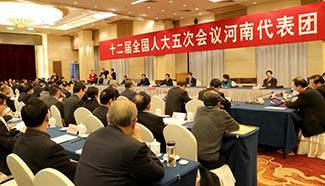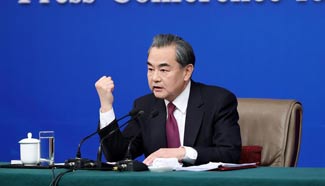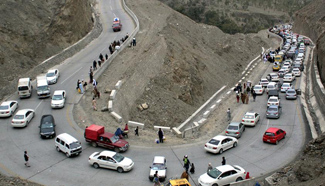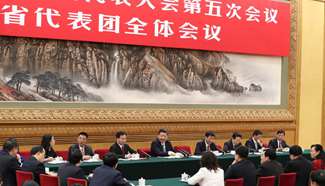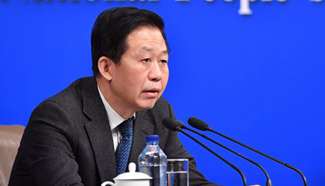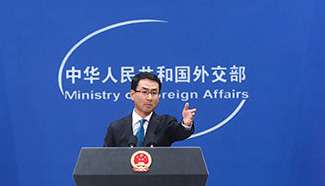BEIJING, March 8 (Xinhua) -- As Seoul quickens its steps to set up a U.S. missile defense system, conservative political elements in South Korea are putting the vital security interests of the country and the region at risk for their own gains.
On Tuesday, U.S. and South Korean militaries confirmed that some of the equipment for the Terminal High Altitude Area Defense (THAAD) arrived in South Korea. According to the South Korean military sources, the anti-missile system will be operational as early as April.
Previously, Washington and Seoul decided to deploy THAAD at the end of the year, a time when South Korea usually holds a presidential election every five years.
It is not difficult to note that the change of the schedule for the installation seems to best coincide with a projected reschedule for the presidential race in South Korea.
South Korean President Park Geun-hye is now under an investigation on corruption charges and an impeachment trial. It is very likely the country's constitutional court would announce its decision very soon. If Park is to be removed from office, a special presidential election will be triggered and held within 60 days.
Political uncertainty inside South Korea is perhaps one of the most important reasons for Washington to speed up the installation as it possibly has to face a new president in Seoul that could change mind on THAAD.
Meanwhile, completing the THAAD deployment in the heat of the election could help South Korea's conservative factions play with the voters' fear for the country's security challenges and to turn around its losing battle in the looming election because of Park's flagrant political scandal.
So long as they could win the race and remain in power, the conservative factions do not care what THAAD really means for the country and its people.
In the eyes of many South Korean politicians, specialists, scholars and ordinary people, the anti-missile batteries, while being of little help to bolster the country's security, are built only to accommodate the strategic security needs of the United States.
Instead of promoting peace and stability in the Korean Peninsula, the military build-up would ramp up the risks for a full-blown confrontation in the region. South Korea will be stuck in between and bear the brunt.
Already, a large number of protesters in Seongju county, where the missile system is set to be placed, have taken to the street to demonstrate against the THAAD deployment, and urged the government to cancel the plan.
In Seoul, the business community accuses the plan of damaging China-South Korea relations and bilateral economic cooperation. Many political parties in the Congress have also blasted the government's approval of the deployment for being unconstitutional, and for turning a deaf ear to widespread objections.
In the final analysis, the South Korean government should take heed of the general public's voices, revisit its decision to let THAAD in, and get back to the right and responsible path of working with regional members, so as to eradicate security problems and foster peace in the region for the long run.

